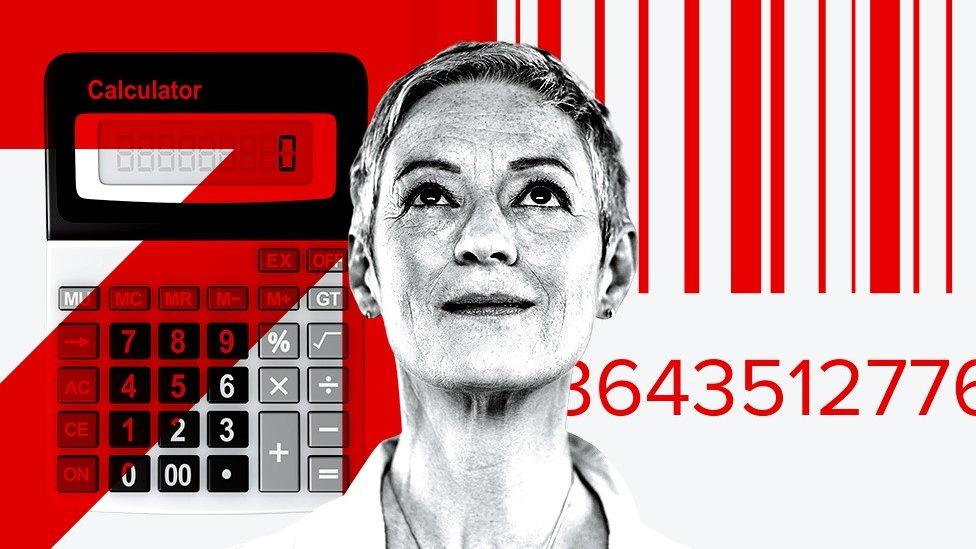Boots, Tesco, Co-op meal deals - which is cheapest?
- Published
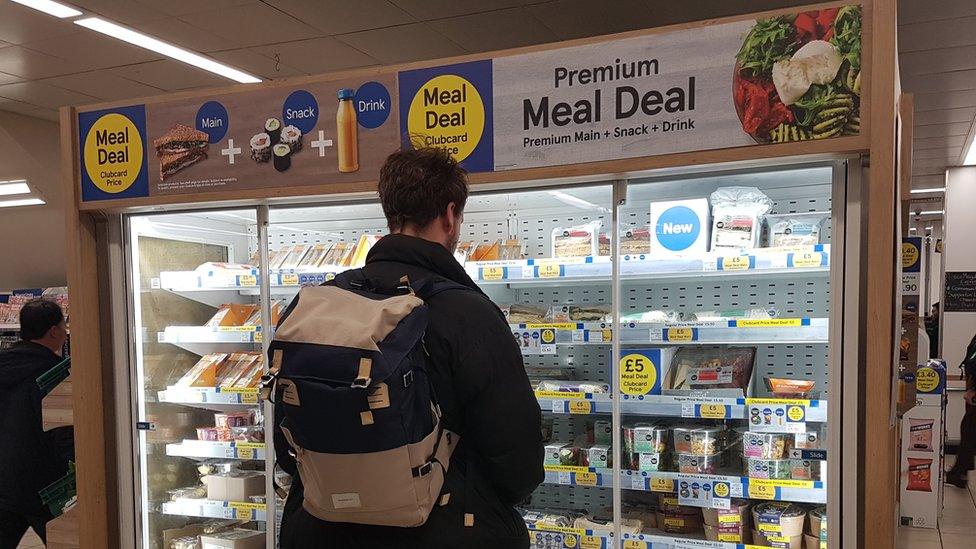
Picking up a sandwich, crisps and drink meal deal when you're out and about used to guarantee a bargain lunch.
But prices of most of these popular lunch offers have been rising.
The average cost of a meal deal at five of the biggest retailers, has gone up by more than a fifth, or 21%, since the pandemic.
Three years ago you could get a £3 meal deal in a lot of shops but the cheapest generally available deal now is £3.50 at Sainsbury's.
Poundland has launched a meal deal that undercuts its larger rivals at £2.50, but with a much more limited range.
Several retailers have added premium deals offering fancier items like hummus, sushi and smoothies so there is more choice - but for a higher price. Boots has put its London deal up to £4.99.
And while Boots, Tesco and Morrisons all have slightly cheaper deals for members of their loyalty schemes, those have gone up too, along with food prices generally.
You can get a three-piece lunch for under the meal deal price by buying the very cheapest items individually, going to a lower priced supermarket like Aldi or Lidl, or making use of Asda's three-for-two offer.
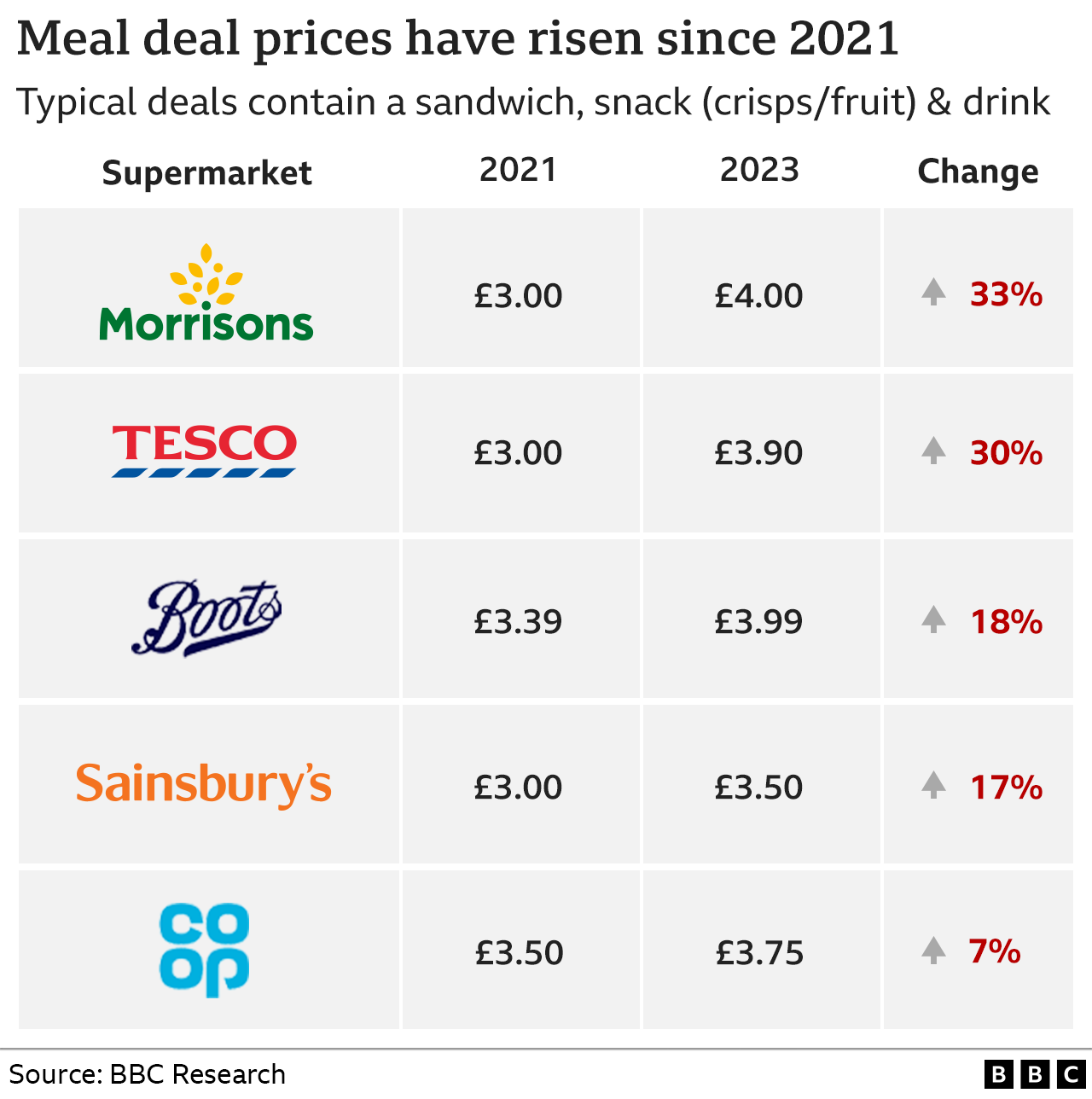
There are no available figures for the numbers of meal deals sold, but plenty of people still crowd around the chilled cabinets in stores. Online, fans post videos of their lunch selections, and long chat threads are devoted to rating, and berating, other peoples' choices.
"The meal deal is getting better value, because everything else is getting more expensive," says Vix Leyton, presenter of the False Economy podcast and a fan of the three-for-a-flat-fee deals.
"A lot of money-saving experts will say you can make sandwiches cheaper at home, but life can be quite bleak at times and if you want a bit of a treat in the middle of the day, it's not a bad one."
Bargain-hunting
Typically a meal deal will save you one or two pounds. For example a smoked ham and mustard sandwich, bottle of fizzy water and packet of plain crisps would cost £4.50 if bought separately but you can get it for £3.50 in Sainsbury's meal deal.
But Ms Leyton says she got a buzz out of picking the most expensive items available, to get maximum value for her meal deal fee.
"You see on the receipt 'you saved £4 today'," she says. It felt she was "getting one over on Tesco".
That's why there's a "bit of a grudge" against getting water on a meal deal, even if you're really thirsty, she says.
Once she realised she was just ending up with a lot of cans of Red Bull that she didn't actually want, she tried to rein in her bargain-hunting instincts.
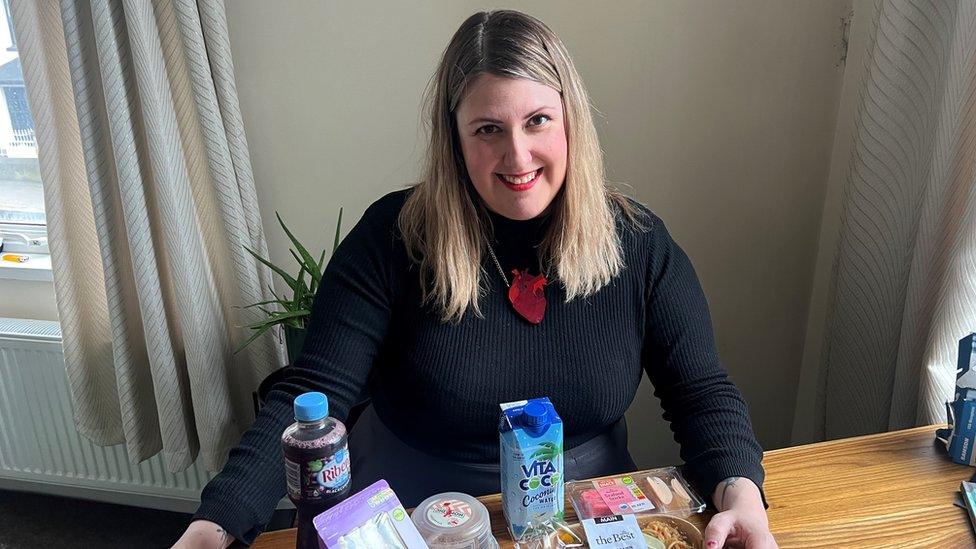
Vix Leyton says she gets a "buzz" out of making savings through meal deals
But the principle remains, a meal deal is likely to tempt you to take things you didn't plan to, points out Cathrine Jansson-Boyd a professor in consumer psychology at Anglia Ruskin University.
"That's what two-for-one, or meal deals, are all about - to make people buy more than they would otherwise," she says.
Then there are the big yellow or red signs, advertising how good the deal is.
"You automatically see those before you look at the products on display. Once we have our attention focused, it is hard to shift it," she says.
"When we think we're getting a good deal we experience a very low-level adrenaline rush - a bit of excitement," she says.
Plus shopping before lunch gets you when you're at your weakest.
"When you are hungry, you want sugar. You make the worst possible decisions in terms of food. There's the meal deal, how could you say no?"
For that reason some would like to see curbs on the meal deal. The Welsh government for example is considering whether high sugar, salt and fat foods, which are restricted in other ways, should be excluded from meal deals.
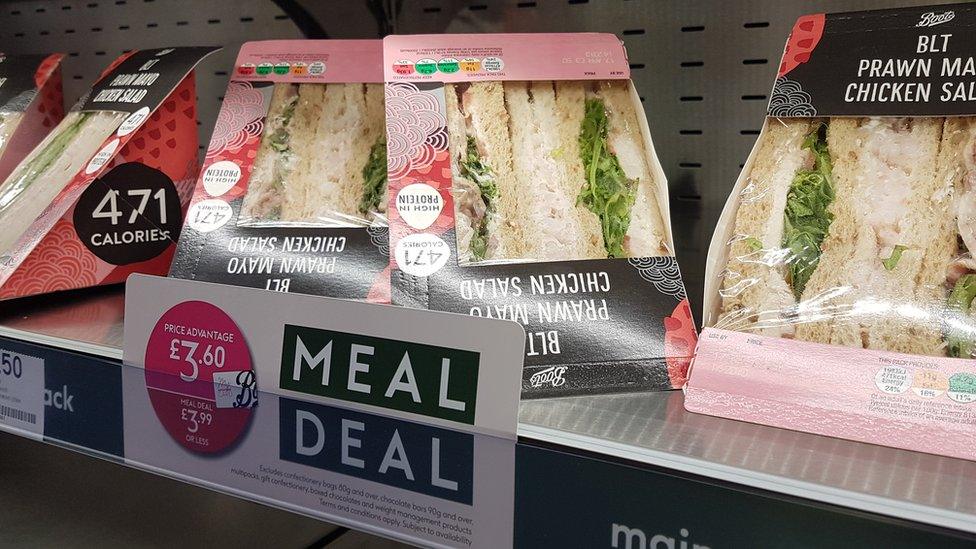
An extra tax on sugary and salty food is supposed to encourage shoppers to make healthier choices. But the meal deal removes that price lever, points out Carol Williams at the University of Brighton, external.
Students she surveyed in 2018 said they picked the most expensive drink to "get a bargain". So there is actually a perverse incentive to pick the less healthy, higher priced, option.
These days Vix Leyton says she takes a more "mature" approach, choosing a sandwich she really wants, even if it's on the low-cost end of the range.
Then she'll either go for the "protein pop" - two boiled eggs, or she'll pick up a pot of olives to stick in her bag for later. You can make healthy choices on a meal deal she insists, if you make up your mind to.
But she isn't getting one over on Tesco either way. Retailers won't mind which you pick up says Dr Jansson-Boyd. For them the point of a meal deal is to hammer home the message that they are a value-for-money destination.
"They're building a relationship with the consumer," she says.
As long as customers are thinking "Tesco was good for the meal deal, I'll go back there" the retailer will be happy, she says.
- Published21 October 2022
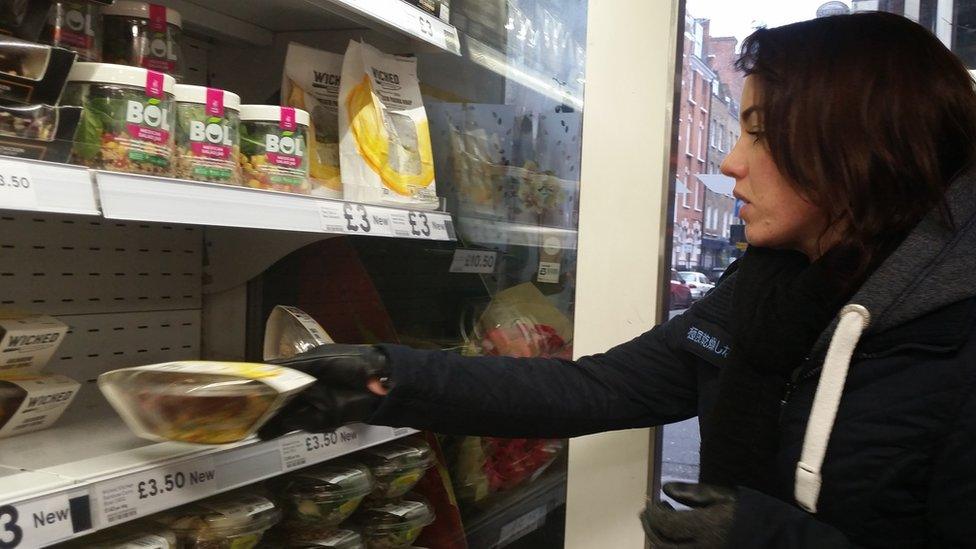
- Published17 July 2024
